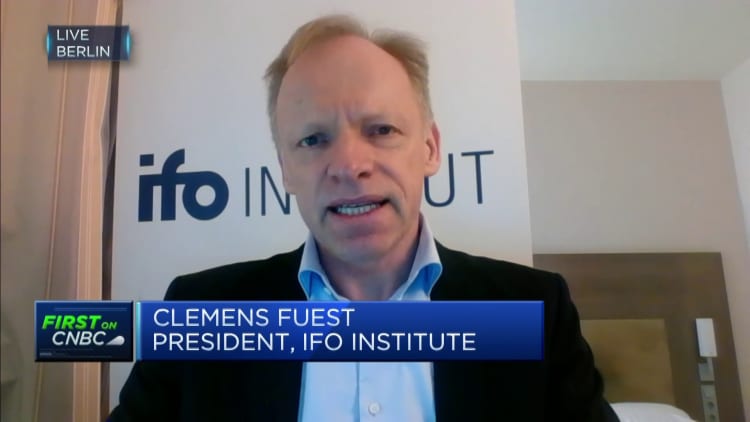Germany’s housing market is ripe for a serious price correction,
The German housing market has been remarkably strong in the last couple of decades, but it faces a serious price correction in the next couple of years, according to some analysts.
Tim Graham / Contributor / Getty Images
The German housing market has been remarkably strong for decades, but it faces a serious price correction in the next couple of years, according to analysts.
Mortgage rates have soared, with a 10-year fixed rate up from 1% to 3.9% since the start of the year, according to Interhyp data, which typically causes demand to cool as fewer people can afford to take out loans.
House prices have already declined around 5% since March, according to Deutsche Bank data, and they will drop between 20% and 25% in total from peak to trough, forecasts Jochen Moebert, a macroeconomic analyst at the German lender.
“If you think about mortgage rates of 3.5% or 4% then you need higher rental yields for investors and given that rents are relatively fixed, it’s clear prices have to fall,” Jochen says. Rental income is a priority for German investors, with approximately 5 million people in Germany receiving revenue from renting, according to The Cologne Institute for Economic Research, and the country having the second-lowest share of homeowners of all the OECD countries, according to the Bundesbank.
While Deutsche Bank doesn’t have specific data for when the bottom will be reached, Jochen said he wouldn’t be surprised if it was over the next six months.
“We already saw the steepest price declines if you look month-over-month — this was in June and July … In August, September and October the price declines are already below 1% … So there is some positive momentum here if you look from an investor’s perspective.”
Holger Schmieding, chief economist at Berenberg, anticipates a house price decline of “at least 5% if not a bit more” in the next year.
“The housing market is softening significantly,” he said, citing a strong decrease in demand for loans and a drop in housing construction.

And while the language used may vary, many analysts are forecasting a dip in Germany’s housing market.
“We expected if there was no energy crisis, no recession, prices would increase further. Now we have a situation where we face a very dramatic adjustment of conditions,” Michael Voigtländer from The Cologne Institute for Economic Research told CNBC.
A recent UBS report went as far as to place two German cities — Frankfurt and Munich — in the top four of its Global Real Estate Bubble Index for 2022, as locations with “pronounced bubble characteristics.”
UBS defines “bubble” qualities as a decoupling of housing prices from local incomes and rents and imbalances in the local economy, including excessive lending and construction activity.
The definition doesn’t suit the German property market as a whole though, UBS Real Estate Strategist Thomas Veraguth told CNBC.
The situation in Germany is “not going to be a typical bubble burst as we experienced in the financial crisis…
Read More: Germany’s housing market is ripe for a serious price correction,
